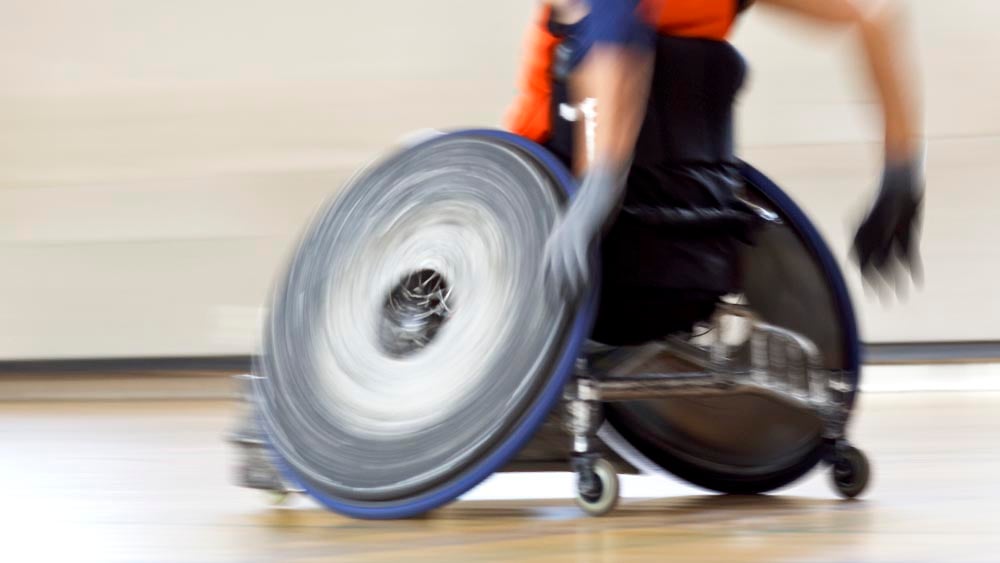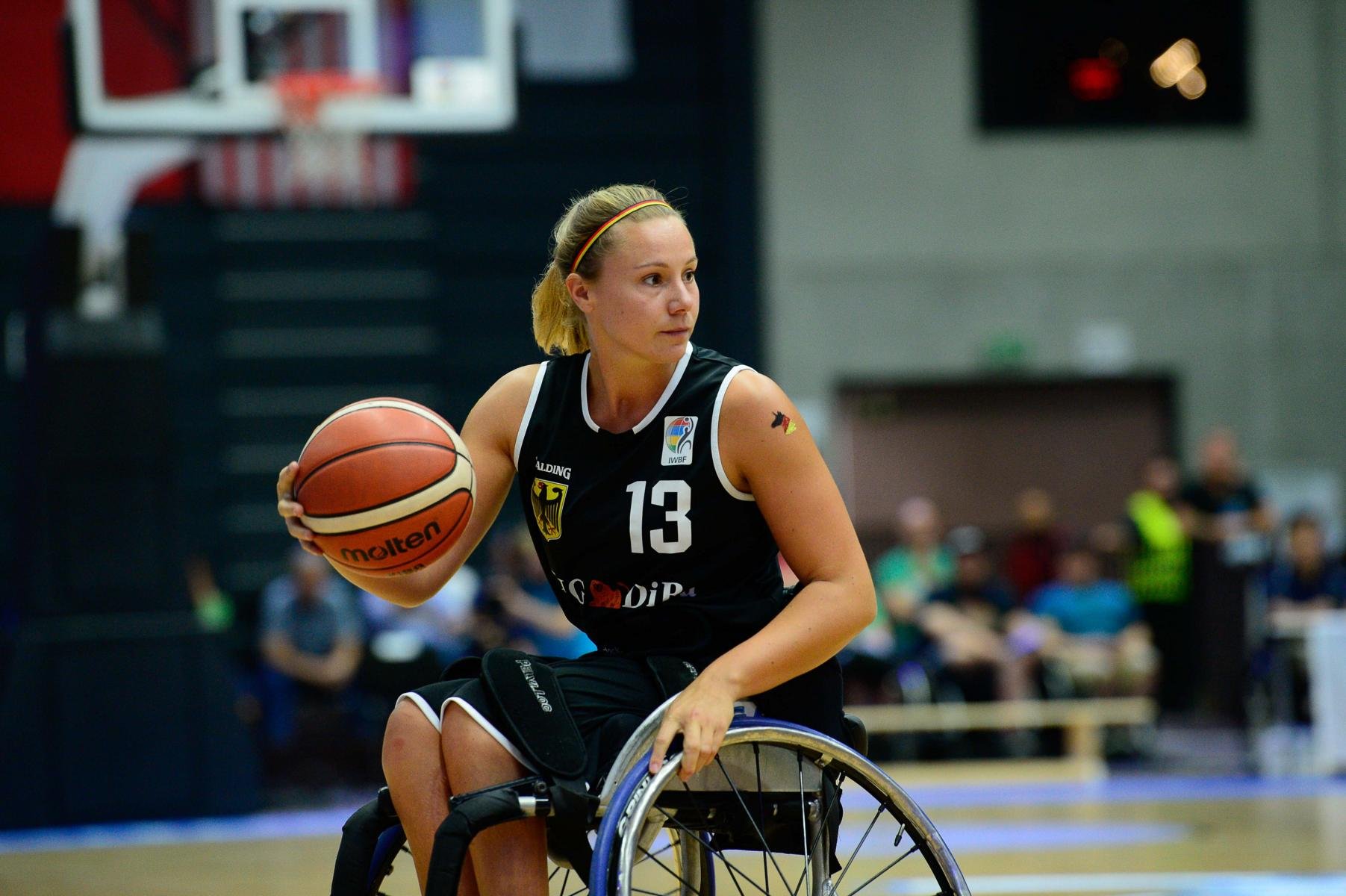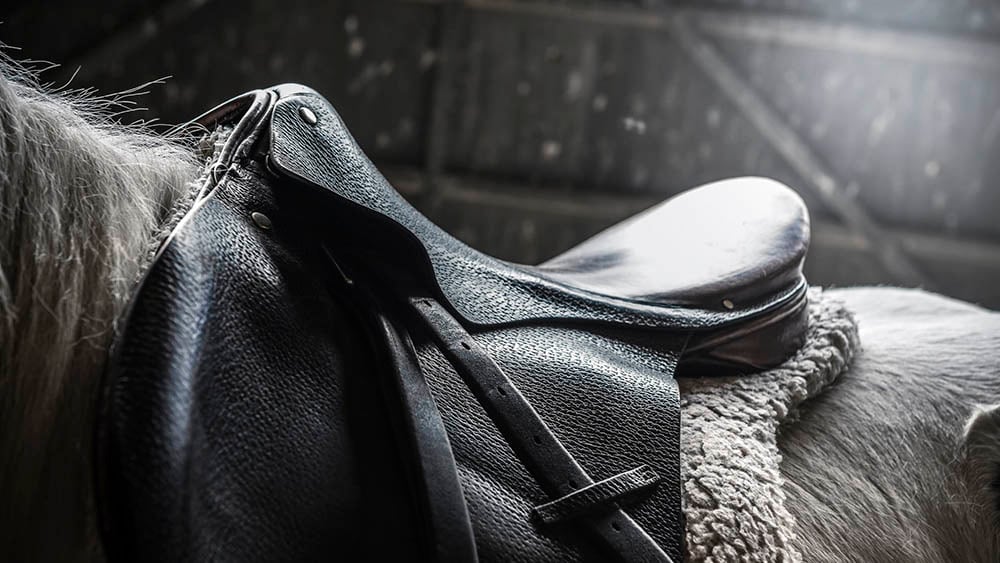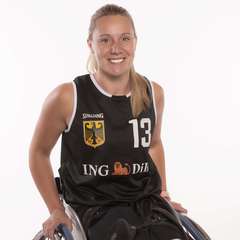Everything could have been so perfect – after months of rehab from a life changing accident, Svenja Mayer returned to her first love of horse riding, unaided.
"It was just pure happiness for me – a few tears flowed"
From losing the ability to walk, to being back in the saddle unaided – all inside a year. Svenja was riding her horse. An achievement for sure, but not surprising – determined, committed, disciplined, to be expected in a professional athlete. And right now, the twice daily gym sessions, the drills, the try outs – the life of an athlete in training was far from Svenja's mind; she couldn't imagine being anywhere else.
There was still a bit of snow, I cycled home from work. Crossing the street, a truck overlooked me.
I was thrown to the ground upon impact with the cab of the truck, and the trailer rode over my hip.
She will then be operated on for 18 hours, after which, she will have lost the ability to walk independently.
“After the accident, I just wanted to be able to ride my horse Uno again. I wanted to be there for him again,” says Mayer. She knew there was a hard road ahead of her. In physical therapy, she trained so that she could move her legs far enough apart to sit on the saddle.
One year later, Mayer was back on her horse for the first time since the accident. Such was the ease with which she returned to horse-riding that her ambitions to compete in tournaments were rekindled. She had an expensive custom saddle made for her so as not to risk a fall.
Everything could have been perfect.
But an abscess was forming on Svenja's ischium bone in the hip, caused by horse riding. Due to her paralysis, the affected part of her body is almost numb, and she only noticed the open wound when she was changing clothes. Again she had to go to the hospital, again she was operated on.
Svenja Mayer reconciled herself to never riding again.

I just couldn't cope with it because the pain was extreme every time
Mayer recalls her first encounters with wheelchair basketball whilst in rehab. Her natural affinity for the sport was not in question and she enjoyed it immensely, but the hard chair contacts in play were too much. But Mayer needed a vehicle for her competitive nature after losing horse-riding, so she returned to the sport, approached it cautiously, dug in and trained. For six hours a day.
In this same year she was selected for the Bavarian national team.
“It's like an addiction to me. I get a guilty conscience if I don't train for a day, ” volunteers the 29-year-old.
Mayer continued to excel and began playing wheelchair basketball in the second Bundesliga. A year later, she was in the first.
|
|
SVENJA MAYER
|
"For me it was the confirmation that I did everything right – that it was the right decision to give up riding and start wheelchair basketball,"
She doesn't miss her old life before the accident: “Of course there were good times. But what I'm now experiencing with the national team would never have been possible as a stylist,” says the 29-year-old. "And I would never have met the great people I met through my accident."
It was with the Bavarian national team that she met her friends and fellow internationals Laura Fürst and Johanna Welin, fellow Rio 2016 silver medal holders and picked for Tokyo2020.
"Laura showed me that you can achieve your goals with a wheelchair." And how to create a national team.
Mayer's goal – the Paralympics
The dream was to fly to the Paralympics in Tokyo in August 2020. Mayer had already completed the first of two selection camps in January and was picked for the 16 person squad. She trained hard for the nomination for the 12 person squad in April, twice a day, six days a week.
At camp, Moritz Anderten, the team's sports psychologist, gave her valuable tips on how to prepare mentally for Tokyo:
“For a competitive athlete, it is of the utmost importance to maintain a positive mental game as well as the physical“, explains Mayer.
But as we all know, before the second Selection Camp could commence, the pandemic struck. All events were canceled, including the Paralympics.
“It was a shock for everyone – the athletes' momentum hit a sudden pause – the future has looked uncertain,” says Moritz Anderten.
He knows that the road to the rescheduled 2021 Paralympics will present a challenge for the athletes to maintain the commitment and motivation to continue training, but there is a silver lining:
“The Paralympic idea will have a deeper meaning 2021. To be part of the 21st Games, to see each other again and to compete against each other with appreciation, recognition, fair play and humanity – this can be something very special and unique in an athlete's career. ”
For Svenja Mayer, this means that she will try again this year to realize her dream of the Paralympics – there is no giving up for the 29-year-old. Her mother never doubts her daughter: “A dream would come true for Svenja, she's sacrificed and given up a lot. I'm proud of how my daughter fought her way back to life after her accident. We as a family support her and are always there for her. "

Text originally written by Jana Rudolf, Photograph: uliphoto.de







